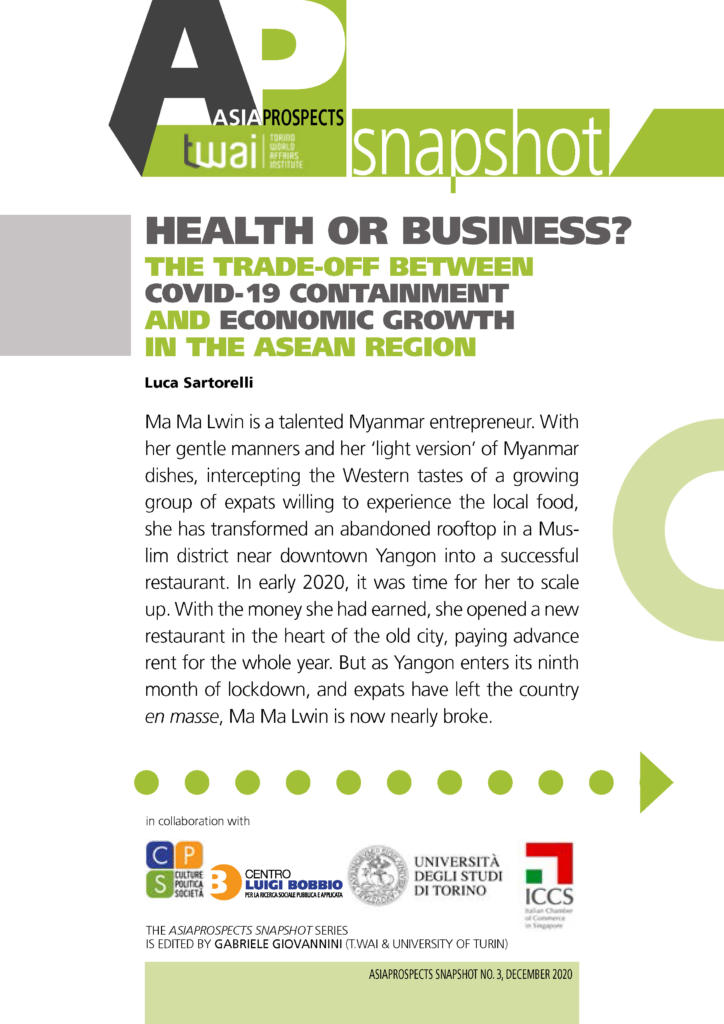
Ma Ma Lwin is a talented Myanmar entrepreneur. With her gentle manners and her ‘light version’ of Myanmar dishes, intercepting the Western tastes of a growing group of expats willing to experience the local food, she has transformed an abandoned rooftop in a Muslim district near downtown Yangon into a successful restaurant. In early 2020, it was time for her to scale up. With the money she had earned, she opened a new restaurant in the heart of the old city, paying advance rent for the whole year. But as Yangon enters its ninth month of lockdown, and expats have left the country en masse, Ma Ma Lwin is now nearly broke.
2020 will be remembered as an annus horribilis by many. Strict and prolonged containment measures against the COVID-19 pandemic are hampering the future of millions of jobs, enterprises and value chains. Globally, containment measures and how they are applied are the very pendulum that is shaping and shaking the markets. Southeast Asia’s economy is one of the hardest hit. But to what extent do pandemic waves and health systems and policies relate to the economics of a country? In this article we examine why and how differently this epochal crisis is impacting on ASEAN members.
Download

Copyright © 2025. Torino World Affairs Institute All rights reserved
